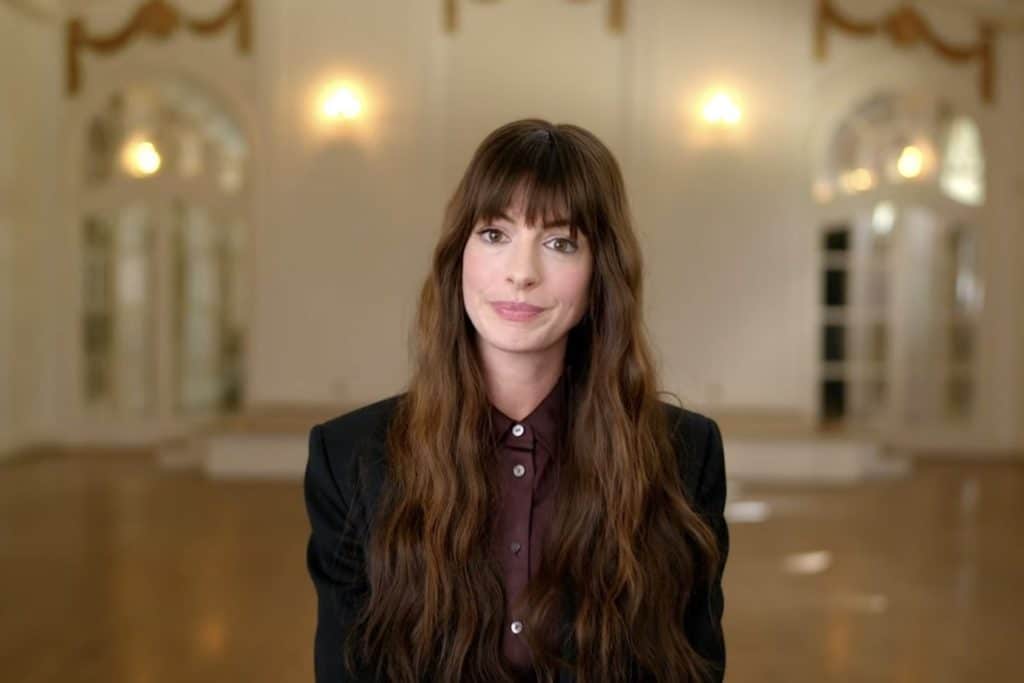UN Women Goodwill Ambassador Anne Hathaway calls for leaders worldwide to put women at the heart of economic growth and recovery.
Hathaway’s powerful call to action came via video message at the Business 20 (B20), held in Bali this year. The B20 is the official G20 dialogue forum with the global business community tasked with formulating policy recommendations to the G20 Presidency.
“Women’s participation and equal power is fundamental to progress for everyone,” said Hathaway.
“And yet, the reality in which we find ourselves is that at the current rate of progress, it may take another 300 years to achieve gender equality. I hope we all agree that this is three centuries too long.”
“Progress for women and girls is in dramatic reverse in many countries. Rights and freedoms that women and girls had experienced as normal – to work, to learn, to make choices about their bodies – have been abruptly taken away.”
“Some of those losses have been legislated or imposed by governing authorities against courageous resistance. Others have been brought to light and sharpened by unprecedented global crises such as the Covid 19 pandemic.”
“The pandemic had a devastating impact on us all, but it hit women especially hard. There was a frightening intensification of domestic violence against women.”
UN Women research shows that more women than men left the workforce in 2020 due to the pandemic, to face the added care burden that came with the stay-at-home mandates, and have also stayed out of the job market longer.
“And now, as fuel and food prices rise globally, amidst the climate emergency and sustained military conflicts, women’s incomes —as well as their contributions to businesses’ success and the recovery of markets — matter even more than ever.” said Hathaway.
“Ironically, the pandemic also showed us just how much our future progress depends on the skills and leadership of women. Women sustained our healthcare systems and invented life saving vaccines. As leaders of countries, they gave us some of the most effective responses to the pandemic.”
“And yet, we show time and time again that we do not equally value women’s participation, contribution, and leadership. This year, in 169 countries and areas (that’s most of the world), women’s labour force participation is expected to stay below pre-pandemic levels.”
UN Women’s 2022 gender snapshot shows that women shouldered at least three times as many hours of care work as men, which led to women doing an additional 512 billion hours of unpaid care at home.
Hathaway says: “Care is fundamental to the basic functioning of our economies and societies, and I’m not suggesting otherwise. In fact, the reality is, everyone will need care at some point in their life.”
“However, we must also recognize the reality that the current way care is provided and valued is unfair and unsustainable. We must address the cultural biases that automatically label care as ‘women’s work’.”
“UN Women has observed that care that’s appreciated and properly valued in all its forms is a critical missing link in unlocking the full potential of women in the economy and in society, which is, of course, the same thing as unlocking the full potential of everyone in the economy and society. Governments, businesses, and civil society can all play a role in this.”
Hathaway says UN Women proposes that these actions be taken immediately: asking governments to support care services, paying the taxes that fund them and prioritising the creation of family friendly workplaces that include flexible working hours, paid parental leave and in-house childcare facilities.
“The stakes simply couldn’t be higher. The world- not just women- needs innovative solutions more than ever. Optimising inclusivity is our best chance at success.”
“Prioritise women for the good of all.”


